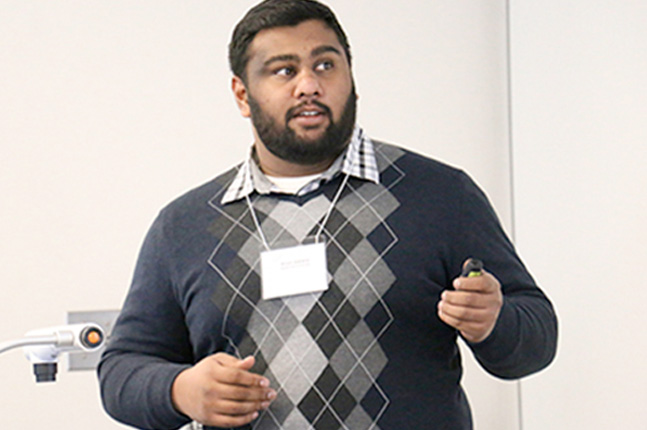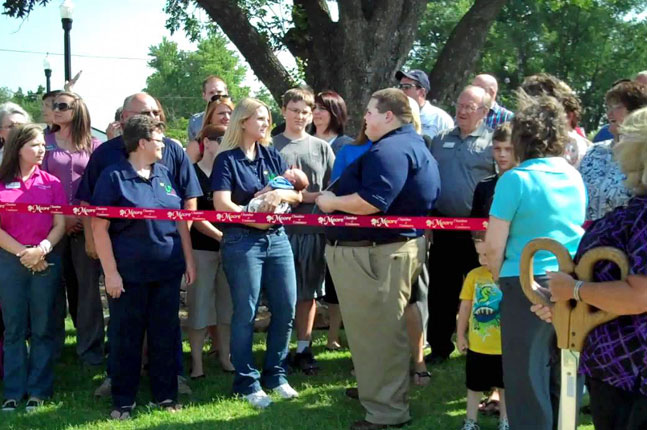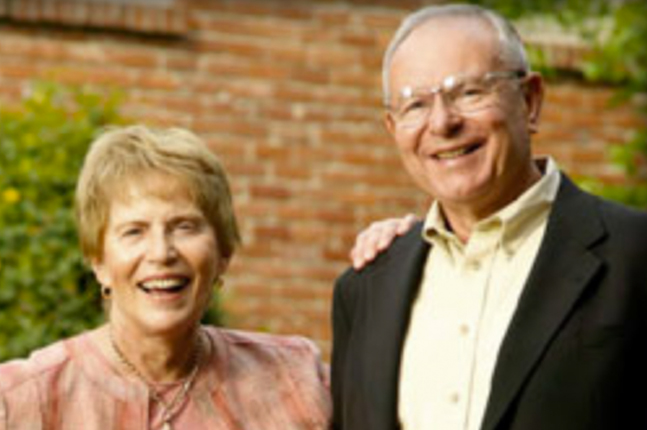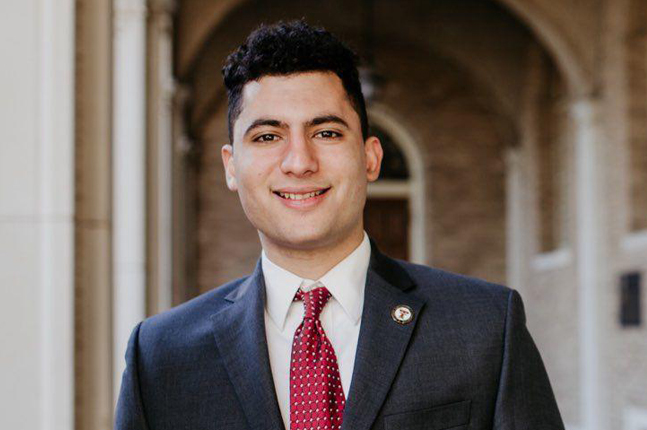As seen on Kettering.edu
Kettering University student Kiran Vekaria ‘16 has always balanced a demanding schedule that has included a heavy course load as a dual major in Applied Physics and Applied Mathematics, a full-time co-op position in the optics division of Magna Electronics and significant involvement in a variety of extracurricular activities.
Added into that mix over the past year-and-a-half has been work on a complex thesis that included building a stochastic model to replicate the growth and lifetime characteristics of endocytosis pits in eukaryotic cells. Vekaria’s thesis — entitled “Ising Lattice Gas Model of Clathrin-Coated Pit Nucleation” — received the 2016 Kettering University Outstanding Thesis Award.
“Kiran is an extremely hard worker and was very dedicated and organized. This is still an ongoing project, and in addition to his work, help sheets and other materials he created will help current and future students who pick up on what he has started,” said Dr. Gillian Ryan, Department of Physics faculty member and Vekaria’s advisor. “He was self-driven and did a great job at finding solutions to challenges on his own.”
Vekaria’s thesis studied the dynamics of clathrin mediated endocytosis (CME) to give a greater understanding of factors that influence the process. Applications of the research as it develops could include prevention of cellular infections or targeted uptake of medicines.
The thesis was selected for the award by the 2016 Outstanding Thesis Award Committee, made up of a multidisciplinary group of faculty.
“I was very excited and in a little bit of disbelief when I found out I’d received the award,” Vekaria said. “Mostly, I was very happy that the last year and a half work has been rewarded.”
Many Kettering students choose to do professional practice theses, tied to their experience with their co-op employers. Vekaria, a Flint Carman-Ainsworth High School graduate, is among a growing number of students who are choosing the research thesis option, something that should prepare him well as he plans to pursue a master’s degree in Optical Science from the University of Arizona and, eventually, a Ph.D.
“A research thesis requires a lot of self-discipline, and it was exciting to see a student take on research on fundamental science,” Ryan said. “This was curiosity-driven research and Kiran learned a lot from this experience that will help him with graduate school. This was really a master’s-level thesis — he produced work you’d expect from a graduate student. So now he has practice doing intense, graduate-level research before he’s even entered grad school.”
Another key for Vekaria was the autonomy he had during his research, something that gave him the opportunity to further develop his skill-set and leadership skills.
“I think that my research experience gave me a great opportunity to not only participate in high level research but to lead it myself,” he said. “I was allowed to manage much of the project myself so this gave me preparation for taking on research for my masters and hopefully my Ph.D.”
During his undergraduate education, Vekaria was involved in a number of organizations, including leadership roles. He was the co-director of the Kettering Student Government Academic Council, the Physics Club secretary, president of the Phi Delta Theta fraternity and member of the Order of Omega, Gamma Sigma Alpha and Sigma Pi Sigma.
“Balancing all of those activities is very challenging but the most helpful thing was budgeting my time and prioritizing tasks,” Vekaria said. “This allowed me to efficiently complete and participate in everything while still having some fun. A lot of these skills were developed from my co-op because there is always an excess of work and we have to figure out the best way to finish it all. Also compromising a bit on sleep helps out.”
Vekaria chose to attend Kettering because of the small class sizes and opportunities to develop strong relationships with faculty, something that helped him on his thesis.
“The biggest advantage Kettering had was the small class sizes,” he said. “This allows for a very personal relationship with my professors. Without this, I would never had the opportunity to research with Dr. Ryan.”
Vekaria’s ability to stay organized and prioritize tasks was also beneficial. Because this was a research thesis rather than a professional practice thesis with his employer, work on the project was limited to his on-campus terms.
“Persistence is one of the keys to Kiran’s success, and to the success of Kettering students in general,” Ryan said. “Persistence, along with intelligence and creative problem solving, is critically important in science, and those characteristics were major reasons for Kiran’s success with his thesis.”





